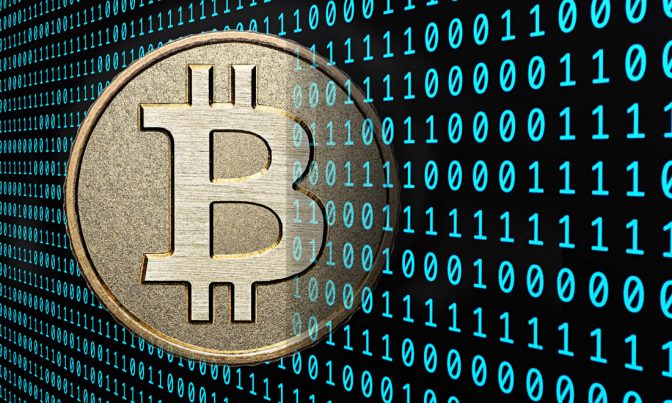
Bitcoin zealots suddenly admit it will never work as a universal payment system… now touting “digital gold” myth to try to keep people buying in
Sunday, November 19, 2017 by JD Heyes
http://www.risk.news/2017-11-19-bitcoin-zealots-suddenly-admit-it-will-never-work-as-a-payment-system-now-touting-digital-gold-myth.html

The toils and troubles of Bitcoin continue but for some reason, the cryptocurrency’s cultists continue trying to reinvent — or, at a minimum reclassify — a fake monetary system whose value has no ties to anything tangible.
Now, some want to rebrand Bitcoin as “digital gold” in another desperate attempt to keep it relevant.
As reported by Coin Telegraph, “while upgrades have been made to Bitcoin along the way, it looks like Bitcoin is becoming less of a payment network and is instead evolving into ‘digital gold,’” even after the failure of SegWit2x, which sought to decrease the costs of Bitcoin transactions and improve the speed of confirmation.
The failure came for a number of reasons, the site claimed. “Some of them were good, and some were mere straw men. But at the end of the day, one thing is clear: There is clearly no rush to increase Bitcoin’s capacity,” the report said.
“So, if Bitcoin has taken big strides towards being digital gold, while also leaving its payment system roots behind, what does this spell for the so-called ‘future of money’? There are still chances for digital gold to work as a payment method though,” Coin Telegraph claimed optimistically.
Not so fast, says Mike Adams, the Health Ranger, founder of NaturalNews.com and Bitraped.news. In a story earlier this month, in which he noted just one user in a popular digital wallet service accidentally destroyed $300 million worth of Bitcoins, Adams said that the current “Bitcoin bubble delusion” has convinced so many people they now believe that the cryptocurrency is the ‘new gold’ or even ‘better than gold.’ (Related: Bitcoin mining rigs now LOSING money daily as the Bitcoin Ponzi scheme continues to unravel.)
“Bitcoin,” he wrote, “like every other cryptocurrency, is nothing more than a virtual shared spreadsheet (ledger) that’s subject to all the failings of software, cyber warfare and even power grid failures.”
The fact remains, says Adams, that only gold can be gold, and to assume otherwise is pure folly.
“Despite the fact that gold is a fundamental element of the cosmos and can’t be destroyed with a software error, there are really people running around the internet claiming Bitcoin is ‘better than gold,’” he writes.
There are some benefits to Bitcoin, he notes, such as the fact that it is very portable and easily transferable to other parties without having to physically carry gold in the form of bars or coins. But those attributes can also be attributed to a checking account, he added.
There is also a myth surrounding Bitcoin transactions — that they’re allegedly anonymous. They’re not, Adams says, “given that the entire history of every Bitcoin transaction is replicated in the public blockchain, meaning that every Bitcoin transaction is easily tracked” [he recommends Zcash, which is a vastly superior cryptocurrency if you’re looking for real anonymity].
Adams then ticks off a list of additional reasons why gold is superior to Bitcoin as a store of wealth. They include:
— Gold has been around for over 13 billion years and is a fundamental element of the cosmos. Bitcoin has existed fewer than 13 years and hasn’t even come close to standing the test of time.
— Unlike Bitcoin, gold cannot be created or destroyed by human beings.
— If the power grid goes down or financial infrastructure is hacked and destroyed, gold will still be gold, while Bitcoins will be…gone. Remember the $300 million example from earlier in this article? “You’ll come to discover that Bitcoin’s value is exactly zero when there’s no electricity,” Adams wrote.
— Physical gold cannot be stolen through the Internet. “Bitcoin has been repeatedly stolen through online wallets, computer hacks and the theft of wallets,” he adds.
Read the rest of his reasons here.
J.D. Heyes is also editor-in-chief of The National Sentinel.
Sources include:
Tagged Under: Tags: bitcoin, cryptocurrency, delusional, digital gold, gold, hype




